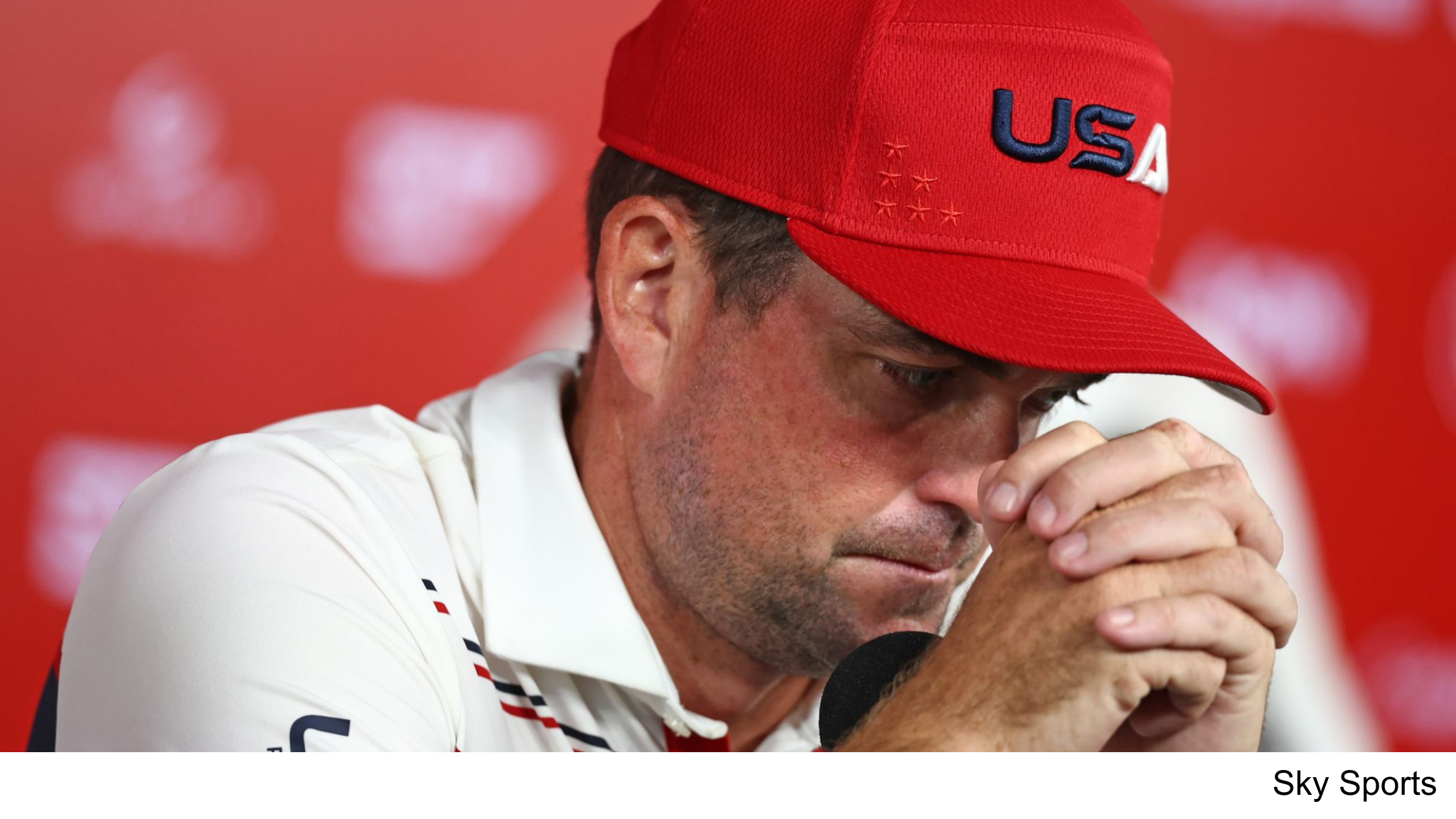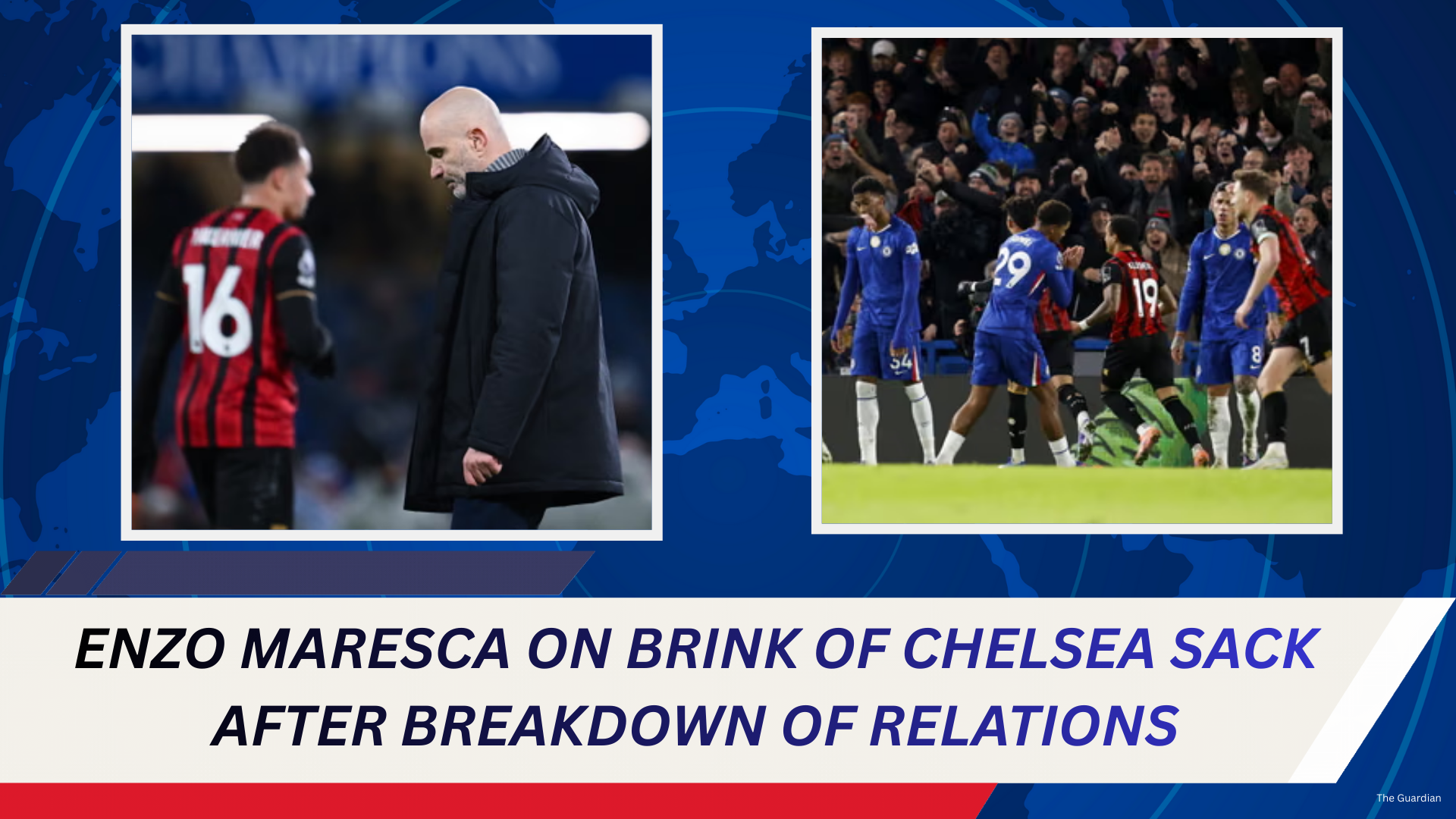Team USA threatened to produce one of the most extraordinary comebacks in Ryder Cup history but ultimately fell short, succumbing to a 15-13 defeat against a determined Team Europe at Bethpage Black. The match, played before a passionate New York crowd, ended with Europe extending their dominance in golf’s most prestigious team event and securing a second consecutive victory, their first away win since the famous “Miracle at Medinah” in 2012.
Keegan Bradley’s American side entered Sunday’s singles session trailing heavily after two days of European superiority. They needed an unprecedented surge to overhaul the deficit and retain the trophy on home soil. To their credit, the United States responded with grit and determination, winning 8.5 points on the final day — equalling the most points ever taken in a Ryder Cup singles session — and briefly igniting hopes of a miraculous turnaround. However, Europe held their nerve in the closing matches to seal the decisive points and silence the New York galleries.
The defeat marked another chapter in the Ryder Cup’s long-running tale of home dominance, but this time it was Europe breaking the cycle. Neither side had managed an away victory in more than a decade, and the scale of Europe’s achievement was underscored by the setting: Bethpage Black, one of America’s most intimidating and partisan venues. For Bradley and his players, the outcome was both heartbreaking and instructive.
Bradley Takes Responsibility for the Loss
In the aftermath, Bradley cut an honest and reflective figure in his press conference. The 39-year-old captain refused to shift blame onto his players or the selection process, instead placing the responsibility squarely on his own shoulders.
“This is no one’s fault but mine,” Bradley admitted. “When you are the leader of the team — the coach, the captain, whatever you want to call it — and you lose, you have to take the blame.”
Bradley praised the fight shown by his players but acknowledged that Europe had simply performed better over the week. “Sometimes in sports, you go up against an opponent that just beats you; they play better. And they played better than us. We gave it a great fight, that’s for sure.”
Those words reflected both accountability and admiration for the opposition. While Team USA’s late charge was remarkable, the damage had been done over the first two days. Europe’s early dominance built a cushion that proved just enough to withstand the American surge.
A New Approach That Fell Short
Bradley’s appointment as captain had raised eyebrows when it was announced in June of the previous year. He had last appeared in the Ryder Cup as a player in 2014 and had never previously served as a vice-captain, a role that often acts as an apprenticeship for the top job. His selection signaled a fresh direction for Team USA’s leadership, a break from the usual rotation of veteran vice-captains stepping up to lead.
In the months leading up to the competition, Bradley even hinted he might serve as a playing captain — a rarity in the modern Ryder Cup. His victory at the Travelers Championship in June seemed to increase the likelihood of that scenario, but ultimately he focused solely on his captaincy duties while continuing to compete on the PGA Tour. Juggling both responsibilities proved to be a unique challenge.
Critics now question whether the experiment paid off. Without prior vice-captaincy experience and with his attention divided between tour events and team preparation, Bradley faced a steep learning curve in organizing pairings, managing player dynamics, and making tactical calls under pressure. While his passion for the Ryder Cup was never in doubt, the result has led to scrutiny of whether a more seasoned figure might have better navigated the complexities of the role.
Europe’s Composure Under Pressure
If Team USA’s narrative was one of missed opportunities and late heroics, Europe’s story was one of early control and steely resilience. Led by an inspired core of veterans and rising stars, the Europeans seized the initiative in the foursomes and four-ball sessions, building a commanding lead that left the Americans needing a record-breaking comeback on Sunday.
When the momentum swung toward the home side during the singles, Europe refused to panic. Their players delivered clutch performances in the anchor matches, securing the vital points to reach the 15-point threshold and clinch the trophy. The victory at Bethpage Black will go down as one of Europe’s most memorable, not only because it ended a string of home wins but because it was achieved in one of golf’s most intimidating environments.
Lessons for the Future
For Bradley and Team USA, the defeat offers hard but valuable lessons. The captain’s willingness to accept responsibility may earn him respect, but it also signals the need for a thorough review of the team’s preparation, selection, and strategy. Questions about the captaincy structure, player pairings, and how best to integrate form players into the squad are likely to dominate the post-mortem.
Despite the disappointment, there were positives to take from the week. The Americans’ final-day performance demonstrated their competitive spirit and depth of talent. Winning 8.5 points in the singles session tied the record for the most ever earned in a single day, proving that the team had the ability to match Europe shot-for-shot when firing on all cylinders. The challenge will be to harness that energy earlier in the contest next time around.
Bradley himself faces an uncertain future as captain. Some believe he should be given another chance with the benefit of experience, while others argue for a return to a more traditional leadership model with a seasoned vice-captain stepping up. Whatever the decision, the 2025 Ryder Cup will be remembered as a turning point in the ongoing rivalry, a contest that combined drama, controversy, and moments of brilliance from both sides.
A Contest Worthy of the Hype
In the end, Bethpage Black delivered everything golf fans could hope for in a Ryder Cup: a raucous crowd, world-class shot-making, momentum swings, and a nail-biting finale. Europe’s 15-13 victory was a testament to their preparation, composure, and unity. Team USA’s furious rally ensured that the competition remained on a knife edge until the closing stages, but Europe’s early dominance proved decisive.
As the celebrations continued for the visitors and American fans filed away from the course, one truth was clear: the Ryder Cup remains golf’s greatest team spectacle, and its ability to produce unforgettable storylines shows no sign of fading.
%20(4).png)




.png)

.png)
.png)
